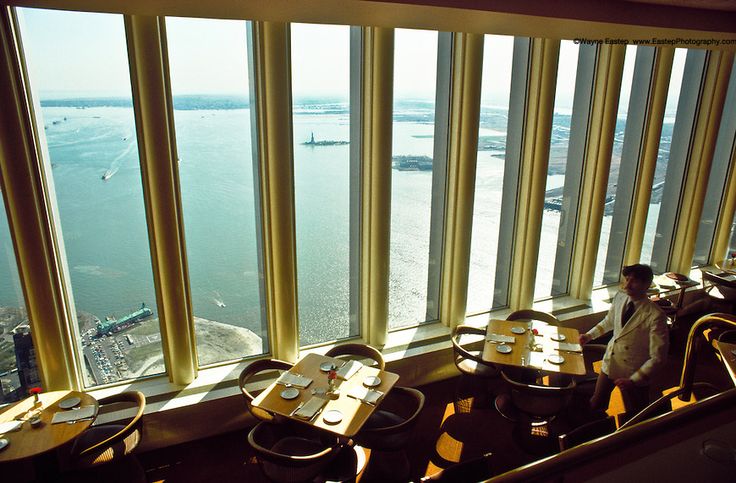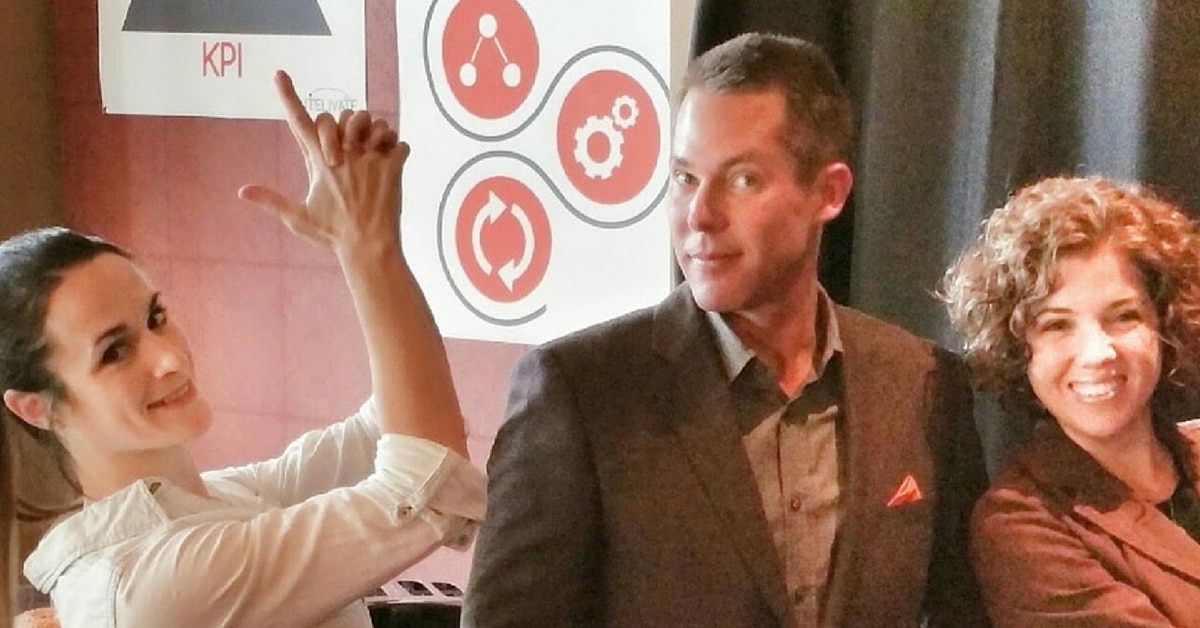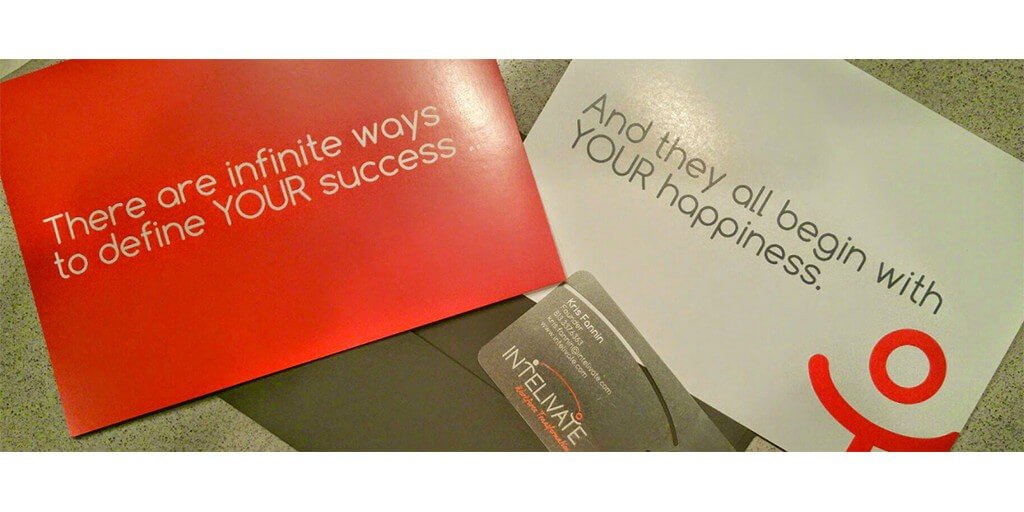Nobody forgets their first employee evaluation. Here are eight critical career lessons I learned from my worst – and first – job review.
“Your place or mine?”
That was the question asked as to where I wanted my first employee evaluation of my career. Now get your head out of the gutter.
It was ten months into the start of my career at American Management Systems (now CGI), and my assigned career adviser told me the time of my first employee evaluation was approaching.
When she asked the question of “your place or mine” she meant, DC (my place) or NYC (her place) offices.
At 23 and although I had flown there almost 100 times in 10 months, I chose her place – One Chase Manhattan Plaza in NYC. We picked a date and arranged lunch at the Windows on the World at the World Trade Center.
It Was Like the Night Before Christmas – For One Hot Minute.
I awoke at 3:30 AM the morning of my first employee evaluation. It was like the night before Christmas when I was six. I couldn’t stand it. What I didn’t know at the time is that I was about to learn some very tough career lessons.
I wrote down some talking-point notes, dressed in my best, pleated pants (don’t think you should wear these when selecting men’s interview attire)and ran to the airport to catch the 6:45 flight to NYC.
As we approached Laguardia, I was a bit disappointed to look down and not see a parade or something in my honor. After all, I had worked my tail off – more than several weeks of 100 or so hours and about 100 flights. I did everything that was laid out in my performance goals, and I was expecting a parade.
I arrived at Wall Street, bid the driver goodbye, ran to the lobby and flew up the elevator expecting balloons.
The elevator doors swung open, and all I got was the usual. Lines ringing off the hook, pages over the speakers to ‘please pick up line.. (fill in number),’ and people running back and forth doing their thing.
Nobody had a clue that a celebration should be happening.
My adviser and I did some quick work and then headed out for lunch. We spoke about a couple of projects along the way, and all I all I could think was,
“How is she keeping all this excitement and surprise in for the best employee evaluation she’s ever given to someone?!”
It was shocking and impressive at the same time.

As we took our seat in the restaurant, I looked to my left to see the Statue of Liberty and thought,
“This is perfection.”
Perfection Turns to Disaster
The waiter took my order, and she took my review out and slapped it in front of me.
What I saw on my employee evaluation brought me to the point of confusion, embarrassment, and anger all at the same time. I received the middle of the three possible scores which was basically “you did your job” score.
The salad had not even come, and I wanted to throw up.
She asked if I had any questions. The salad came, and I just stared at it.
“What do I need to do to get the top rating on my next employee evaluation? I did everything in my performance goals agreement; I worked many weeks at near 100 hours, and I flew over 100 times to get those goals accomplished.”
While finishing a bite of her salad, she looked at me and asked,
“How many flights did you miss?”
I immediately came back -in an almost game-show sort of way as I was so confident in the ‘right’ answer – and said, “Out of the 100, the only few I missed were connections and out of my control.”
She paused, looked out the window and stretched her head to see the Statue of Liberty. She looked back briefly and said,
“You need to miss more flights.”
She went back to eating her salad.
My ‘right’ was painstakingly obvious was the most perfect ‘wrong’ answer ever on a game show- and – all of world history. Several awkward minutes passed and then I got the courage to ask, “May I ask what you meant by I need to miss more flights?”
She chuckled and replied,
This business is unique. You need to be unique. Doing the job is ordinary. We are moving to extraordinary.
To be extraordinary, you need to risk missing more flights.That means you are doing things and scheduling things – great things – that push the limits of your flight time.
You did your job. Focus on extraordinary.
That’s it.
That’s the only constructive feedback I received. I was going to do what I needed to do better.
I had to mourn a little first.

Tough Career Lessons – The Franklin Covey Planner and Tear-Smeared Ink.
The entire flight home I was numb. It seemed stupid now but was HUGE at the time. You get that.
The flight attendant came by on the 35-minute flight back to D.C. and asked if I wanted a snack. I could barely muster up a, “No thank you.”
Once landed, I ran to my crash-pad. When you start consulting, you are always flying somewhere. You are frequently traveling Sunday-Thursday or Monday-Friday. So you get crash-pads with other consultants as they are always jetting off as well. Ultimately, you rarely see anyone in the apartment as our assignments are all over the place and the world.
I ran to my bed, snatched my Franklin Covey planner out of my briefcase and started making a plan – I needed to turn the little feedback I received into lessons – career lessons.
As I was writing notes and ideas, it happened. The blue ink smeared. I had dropped a tear.
At that moment, I did not know what to do to get my dream. Now that I look back at it, I just needed to experience more, and the answers to find my career path would become clear.
Career Lessons From My Worst Employee Evaluation
As I grew in expertise in both work and life, here are the career lessons I gained from that first employee review.
8. Performance Goals & Measures Are Different Than In College.
In college, when I got all the right answers and completed the task, I was awarded an “A.” This was one of the toughest career lessons for me to understand at first.
When getting all the right answers and completing the tasks in the workforce, I got my salary. Nothing more.
You’re not in college anymore. Performance goals are different. Unless otherwise stated, assume your performance goals agreement is a structured roadmap to ensure you fulfill the job requirements.
End of story.
It is not like a test in college, and you do not get an ‘A’ for completing them all. You keep your job. If you did them all well, then you met the requirements of the job.
7. Your Job is To Do Great.
You are hired on the expectation that you will perform significantly. Your job is to do great.
If you are just producing the widgets that you have been instructed to deliver then no matter how fantastic the widgets are, you are still JUST doing what you are paid for – your job. It was of the hardest career lessons for me to learn.
6. Redefine Your Job and Role.
You produce great widgets. Great. How do you get the edge-up in exceeding your performance goals? Redefine your job.
If you were to redefine how to use or produce those widgets – and I need you to understand this next part – in addition to creating amazing widgets – then (and only then) are you doing something extraordinary.
5. Compete with Yourself. Not with Others.
Be competitive with yourself. Here’s why. If you are only trying to do better than your colleagues, you will maybe do it better, but you will do nothing unique. Nothing extraordinary.
Compete with yourself. Not with others. Don’t focus solely on your competition – concentrate on creative solutions to a business challenge. That is the only way you will develop a unique solution and find a true passion. It is also one of the career lessons that many people learn too late.
4. Develop Your Own Performance Goals Plan.
When I would get my finalized performance goals plan, I would chop it apart and make my own. I still do this with any client contracts that contain performance goals. For each section in my agreement and each goal, I will define an “up goal” of my own.
Develop a performance goals agreement with yourself that you can also incorporate into your career progression plan. Something way above and beyond what is expected. I keep it a secret.
Why?
Otherwise, the goal becomes expected and ordinary. When I accomplish what is not expected – the outcome becomes extraordinary. Over time even the most extraordinary things become ordinary through expectations and repeated exposure.
This was one of the most important life – and career lessons – I’ve ever learned.
3. Bonuses Are For Extraordinary – Not For Doing Your Job.
Your salary and compensation are for doing your job in an exemplary manner. A bonus is an incentive for doing something – you guessed it – extraordinary.
Bonuses should not – and are not given – for simply fulfilling the duties of your job requirements.
2. Raises are Not Bonuses.
Stop it. Stop thinking you deserve a raise because you did your job for a year. Seriously. Just halt the mindset now for future success.It’s one of the toughest – and most important – career lessons for many people to learn.
Raises are a way to compensate you for a higher level of responsibility and an expected greater impact to the business. Anything above COLA or market calibrations will – and should – come with more responsibility and higher performance and impact expectations.
Raise your business impact (either reducing costs or raising revenue) on the company.
1. Miss More Flights – Take Risks.
Nothing extraordinary comes from doing the ordinary, and it certainly doesn’t come from doing it better. It comes from defining something new or redefining something old. That requires taking a risk.
Miss more flights. Take risks. Besides, the downtime in airports is just excessive and unproductive – I do not care how many electronic gadgets you have.
Final Thoughts
I admitted I cried a little after my first employee evaluation. So do me a favor and let me know about your first review or your most traumatic. Understand there is life after rejection and it’s up to you to make it happen!
I am sure you have some amazing ones. Whether you are gearing up for your first or your 40th annual employee evaluation, I hope some of these career lessons help you make it to the top!
Keep Reading: How to Keep Personal Problems From Destroying Your Motivation →
Related Solutions to Help with Your Career Lessons Goals.
Kris Fannin
Kris Fannin is a passionate change agent in workforce transformation. For more than 25 years, he's had the privilege of partnering with dozens of client organizations and leading hundreds of teams to become powerful influencers.
"Your legacy will be defined by the passion and impact of the people you influence. What do you want your legacy to be?"



